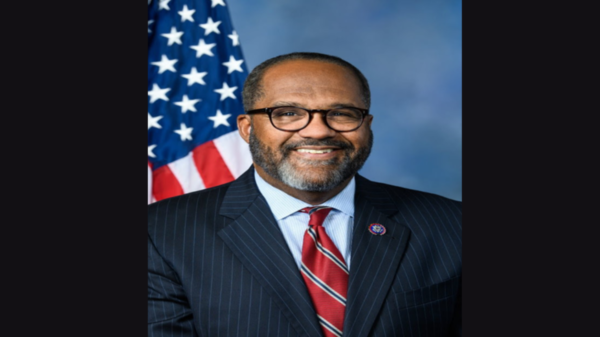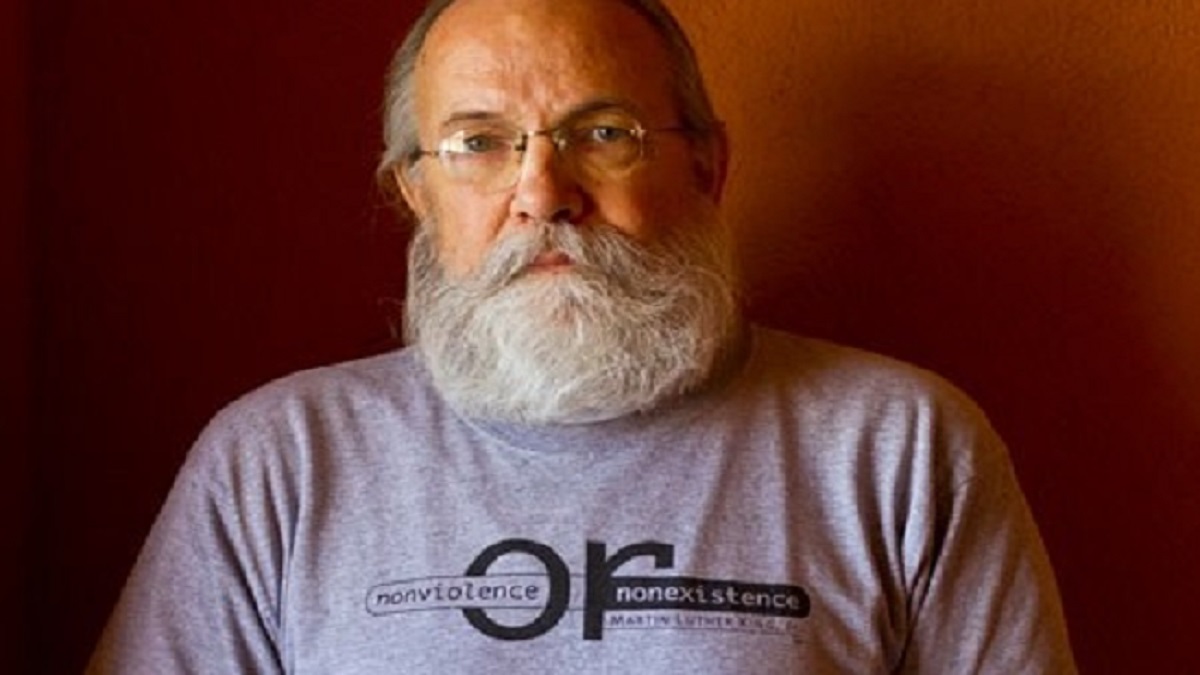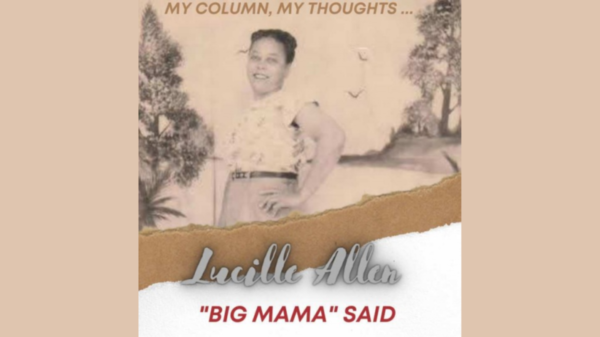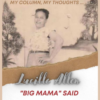
Since 2021, the Texas Legislature has been on a mission to dismantle voting as we know it in Harris County. Come Sept. 1, one of their major efforts at election change will take place as Senate Bill 1750 goes into effect. But that’s not the only election law that could place the voting rights of Black folks in jeopardy.
“The last two sessions of the Texas State legislature have really been kind of devastating in terms of the impact that it has had on the electoral process,” said Texas Southern University political scientist, Dr. Michael Adams. “It has made it difficult within a democracy to actually exercise the right to vote in the state. It’s important to understand that one’s vote is a voice, and it should be the ease of voting that we need, as opposed to trying to create mechanism that will make it difficult for one to cast a ballot and to be heard.”

Here’s a look at some of the major election law changes:
Senate Bill 1750, passed by Republican lawmakers in May, is slated to go into effect weeks before early voting starts for the November elections in the state’s largest county. The law requires Harris County to transfer all election-related duties from elections administrator Clifford Tatum, who was appointed just before the November 2022 elections, to the county clerk and the county tax assessor-collector.
Harris County Attorney Christian Menefee filed a lawsuit last month arguing that the law is unconstitutional because it singles out one county. Though Travis County District Judge Karin Crump granted a temporary injunction barring the law from taking effect, the Texas Supreme Court ultimately overruled it.
Texas Republicans authored SB 1750 after controversy surrounding Harris County’s 2022 primary elections, which led to the resignation of the elections administrator at the time, Isabel Longoria. In November, paper ballot shortages and long wait times at several polling locations led several losing Republican candidates to seek a redo of the elections. Several of those lawsuits are still moving through the courts.
Senate Bill 1933 allows the secretary of state to impose administrative oversight during an election in counties with a population of more than 4 million people (i.e., Harris County alone) if the secretary of state “has good cause to believe that a recurring pattern of problems with election administration or voter registration exists in the county.”
House Bill 1243 raises the penalty for voting illegally from a misdemeanor to a second degree felony, on par with manslaughter and attempted murder. It also raises the penalty for attempting to vote illegally to a state jail felony. However, it doesn’t include a provision the Senate wanted, which would have punished a person for voting illegally even if they did not realize they were committing a crime.
Both HB 1243 and the Senate’s version, SB 2, came after several high-profile cases of individuals being arrested for voting while still on parole and not having had their voting rights restored yet.
“This version that did pass, while horrible, insofar as it increases the criminalization of voting, and it ultimately will intimidate people from the process because of the threat of felony penalties, it at minimum doesn’t include that opened door for prosecutions of mistakes and confusion,” said Katya Ehresman, voting rights program manager for Common Cause Texas.
Senate Bill 1070 begins the process of withdrawing Texas from the interstate voter data consortium known as Electronic Registration Information Center (ERIC). The measure would allow the Texas Secretary of State’s Office to create its own system for maintaining the state’s voter rolls.
“I think it absolutely leaves Texas voter registration lists more vulnerable than they were before,” Ehresman said. “It especially is concerning for voting rights advocates, insofar as it means the Secretary of State’s Office could create their own system for list maintenance.”
Senate Bill 477 expands protections for voters with mobility issues. Requires signage explaining how to vote curbside and mandates the marking of multiple parking spaces for curbside voting.
Impact on voters
Sylvia Ann Miller-Scarborough remembers when people of color had to pay a poll tax to vote in Houston. She recalls her grandmother, undeterred by such obstacles, reminding her how important it was to be heard at the ballot box. Miller-Scarborough worries that much of the hard-won progress she’s seen in more than a half-century of voting in the largest county in Texas could be erased by Republican lawmakers. And she says it’s gotten harder to convince her own grandchildren that it matters.
“They don’t believe in voting,” she said. “They are all in their thirties, but they don’t vote. They won’t go to a political rally with me. They say what’s the use? Nothing has changed, as far as they can see.”
Miller-Scarborough, 79, lives in Kashmere Gardens, a historically Black neighborhood in Houston. She thinks the legislature’s actions will fuel cynicism that already exists among voters who don’t remember the struggle for the right to vote.
“I hear my grandkids already saying, ‘See that, granny? I told you that didn’t do any good to vote, didn’t I?’”
Around Houston, it is easy to find voters who say the political implications of constant legislative meddling in Harris County elections are obvious.
An attack on Harris County
Harris County, a Democratic stronghold in a state long dominated by Republicans, is one of the most diverse places in Texas, where the minority population has been growing for decades. Democrats have long predicted the state would turn in their favor, but those dreams have been dashed repeatedly. Harris County has more than 4 million people and over 2.5 million registered voters. While Donald Trump won Texas by under 6 percentage points in the 2020 presidential election, President Joe Biden won Harris by a 13-point margin
Just four years earlier, Republicans controlled the county; their slipping grip reflects the shifting population trends.
The non-Hispanic white population of Texas fell below 50% for the first time between 2000 and 2010, when it made up 45% of the total, and continued to decline through 2020 to 41%, according to the U.S. Census Bureau. The changing demographics have cut into Republicans’ typically wide margins of victory and made Democrats, who have consistently won substantial majorities among both Black and Latino voters for decades, more competitive in Texas’ booming suburbs.
In Houston, where the population shift to majority-minority status happened earlier, new voting maps also drew an outcry in 2021 after Republicans lawmakers created no new congressional districts where minority residents hold a majority — even though Hispanic residents are driving Texas’ surging growth.
That adds to a wariness among voters of color that’s deeply rooted in Texas history. White leaders of both parties employed numerous tactics to suppress the minority vote, from the poll tax to literacy tests, for at least a century. Texas was one of five states that still allowed poll taxes when they were outlawed by the 24th Amendment to the U.S. Constitution in 1964, and while the tax went away, Texas didn’t ratify the change until 2009.
That history motivates former Democratic Senator Rodney Ellis, who sponsored the Senate resolution to abolish the poll tax and remove the old stigma. He said the problems of the past should inspire apathetic voters.
“Knowing that my ancestors had to count jellybeans, had to try and recite the Constitution by memory — I’ve got three degrees, including a law degree — I can’t do that,” said Ellis, now a Harris County commissioner. “Yet somehow, they had to make a way.”
Keith Downey, president of the Kashmere Gardens Super Neighborhood Council, a planning forum in Houston, said the legislature’s heavy-handed tactics are about control.
“It discourages the voter,” he said. “It discourages a resident. The resident wants to have taxation with representation. What they’re getting is taxation and no representation.”
“How can you control a community you don’t live in, and you have never visited?” Downey asked.
The Associated Press contributed to this report.
“What we’ve seen in the state of Texas is more retro aggression in terms of going backwards. We have challenges going forward, and there has to be a movement to push back and to make voting easy as opposed to cumbersome.” – Dr. Michael Adams
“Voting should be free of partisan politics. I want you to have the right to vote against me just as much as I want people to have the right to vote for me. And I’ll take my chances. I’ll roll the dice, so to speak, with the voters.” – Harris County Commissioner Rodney Ellis








You must be logged in to post a comment Login